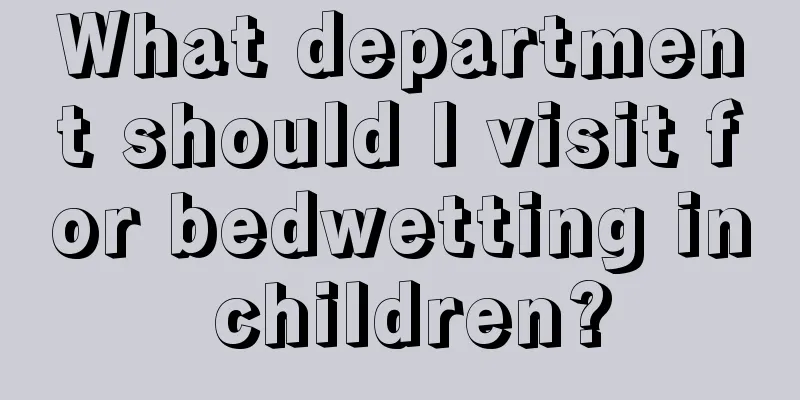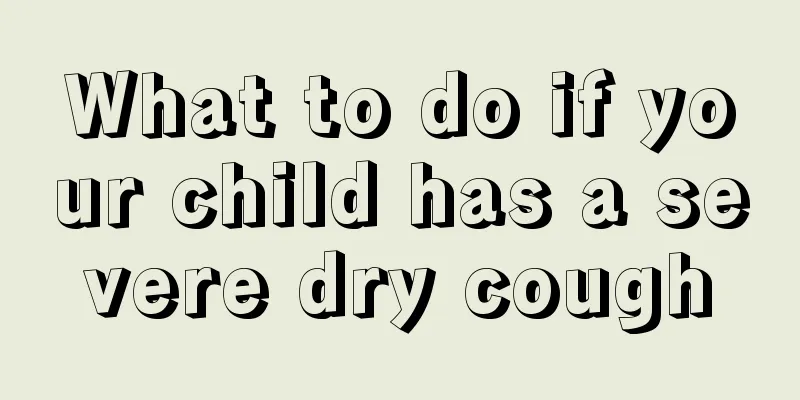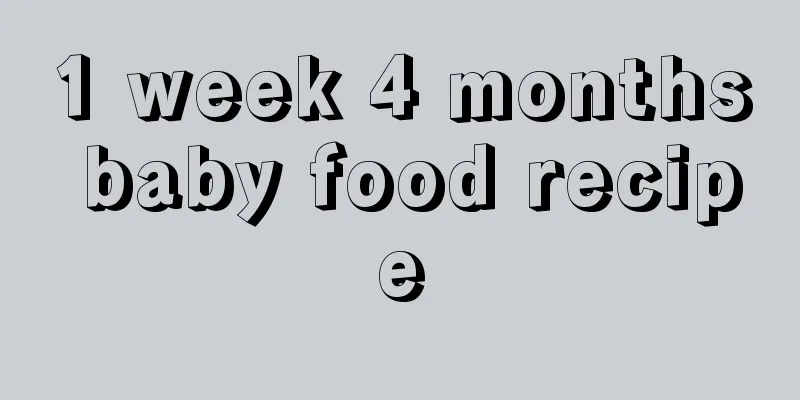Why does the baby cry while feeding?

|
New mothers all have this problem. When babies just come into this world and cannot speak, the only way they can communicate with their parents is to cry. When babies cry, mothers sometimes cannot hold them or coax them, so they let them breastfeed. However, sometimes babies cry even when breastfeeding, which confuses mothers. They can't help but ask: Why do babies cry when breastfeeding? When he was a little older, he started crying more often. If it happens shortly after feeding, and he has been patted on the back and burped, and put to sleep, then he is probably not full, because babies often fall asleep within a few minutes of feeding, and the mother does not wake him up to continue feeding. In this case, continuing to feed him to meet his needs will calm him down. If the baby has been breastfeeding for 20 minutes, or has finished enough milk and is full, but soon starts crying again, you should check whether the diaper is wet or whether he has had a bowel movement, because the rapid intestinal movement before defecation will cause him to feel abdominal pain. Or, his clothes were too tight and rubbed his armpit skin. If the baby cries while feeding, the mother should pay attention to whether the milk is too hot and burns the oral mucosa, or the milk hole is too large so that the milk flows out too quickly. If the baby is breastfed, the mother should pay attention to whether the milk flow is small, the baby has too much effort to feed, or the breast milk is too quick. The mother can stroke the breast from top to bottom or use the index and middle fingers to gently press the breast above and below the areola to ensure moderate milk flow. Sometimes a baby's nasal congestion will affect his milk sucking. Oral erosion, mouth ulcers, herpetic stomatitis or pharyngitis will cause pain and crying when feeding. If a baby suddenly cries loudly, mostly in the evening and lasts for a long time, but may stop suddenly and cry again soon, you can gently touch his abdomen. If the abdomen is slightly swollen but soft without lumps, the crying is mostly caused by colic. Colic in young babies is mostly caused by inhaling a large amount of gas when feeding; or the milk does not fill the nipple during bottle-feeding; adding sugar to milk usually makes it more likely to produce gas; or often sucking on a fake nipple and inhaling too much gas. At this time, you can hold him upright, let him lie on your shoulders, pat his back to help him expel the gas, then hug him tightly, let his abdomen rest against you, this will make him more comfortable. But sometimes this may not stop him from crying, as continued crying will cause him to inhale more gas, thus forming a vicious cycle, so you have to pat his back repeatedly. If the baby continues crying for a long time, you can put him on the bed, because he may feel tired after crying for a long time, and lying on the bed will make him feel comfortable and stop crying. The baby may cry several times a day, and everything is normal between crying. Generally, colic will no longer occur when the baby is 3 to 4 months old. If a baby cries repeatedly and vomits or has jelly-like stools, take him to the hospital immediately; he may have intussusception and needs emergency treatment. If a baby has an umbilical hernia or an inguinal oblique hernia and suddenly starts crying, you should first check the hardness of the hernia mass and whether it is tender. If the hernia mass becomes hard and the crying worsens when touched, you can first let the child lie flat and gently press the mass with your hand to make it return to its original size. If the tumor cannot be reduced, do not apply forceful pressure on it with your hands and go to the hospital immediately. Some babies sleep restlessly at night, sweat a lot, and cry often. Some people call them "night crybabies." It often occurs in infants born in autumn and winter and is a manifestation of active rickets. Please add calcium powder or calcium tablets and vitamin D or concentrated cod liver oil on time, and get more sun exposure. If you have done this and still have symptoms, please discuss dosage adjustments with your doctor. If a baby cries when defecating, it is usually because the stool is too dry. If this happens to a bottle-fed baby, you can add more sugar or honey to the milk, and feed him more water, fruit juice, vegetable juice, or fruit or vegetable puree between feedings. You can also apply ointment on the anus to prevent anal fissures. If you encounter a baby who is crying and has a fever, you can lift his ears. If the crying becomes louder, he may have a boil in his external auditory canal or otitis media (otitis media). Check his mouth and throat; there may be herpes or small ulcers. If the baby cries more when urinating, it may be caused by a urinary tract infection. You can take a urine sample to the hospital for testing to save time staying in the hospital. Don't forget to touch his fontanelle. If it is bulging or bulging, please see a doctor. Through the above, you not only have an understanding of babies crying while feeding, but also have an understanding of other crying situations. In fact, babies sometimes cry, and parents should not be overly nervous. Although it is distressing, you must also find out the reason why the baby is crying, so as to ease the baby's emotions. You will have some solutions on how to relieve your baby's crying while feeding. |
<<: What should I do if my baby has a hoarse throat?
>>: Symptoms of allergic eczema in babies
Recommend
Clinical manifestations of heart failure in children
The situation of heart failure in children is sti...
What causes baby's palms to sweat?
Today's babies are the sweethearts of the fam...
How to care for scarlet fever
For this kind of recurring disease, you must pay ...
Is a child's fever of 385 degrees high?
For teenagers or adults, a fever of 38.5 degrees ...
Can a child's gene mutation be treated?
From a scientific point of view, gene sequences a...
Children with low nose bridge
Almost everyone wants a higher nose bridge, becau...
What are the common sense of children's first aid?
Children are not like adults. If children have an...
What is the cause of blood in the urine of children?
Generally speaking, when children have hematuria,...
What should I do if my baby has a high fever? Try these methods to reduce fever!
For all parents, a baby with a fever is the most ...
At what age do babies start talking?
The process from the birth of a child to the time...
Is glucose good for children?
Many parents worry that their babies will not get...
Can the anti-hunchback correction belt correct children's hunchback?
Nowadays, there are a lot of people with hunchbac...
11-month-old baby development standard
Generally speaking, some babies at eleven months ...
What to do if a girl's urethra is red and swollen?
In addition to paying attention to diet and physi...
The child has blue eyes
Blue eyes are a common symptom in children. Some ...









